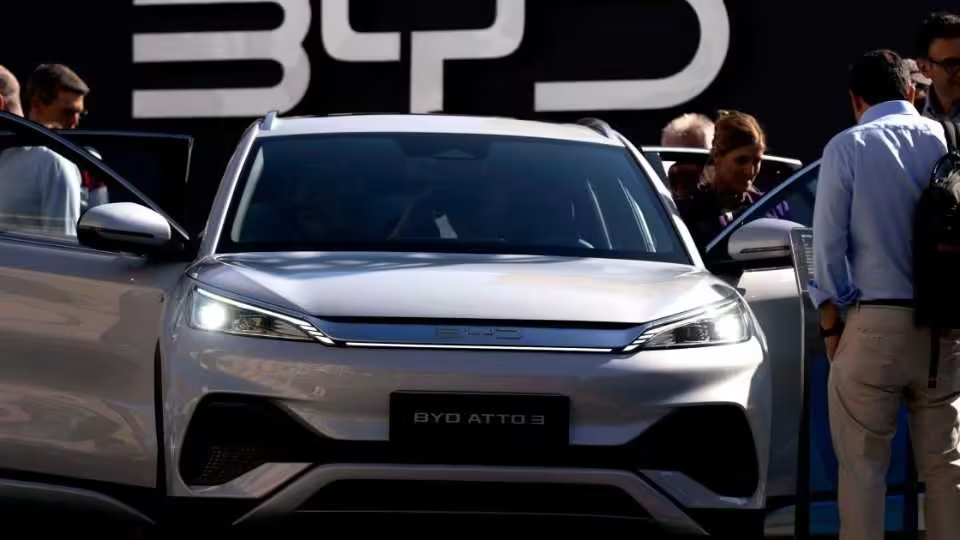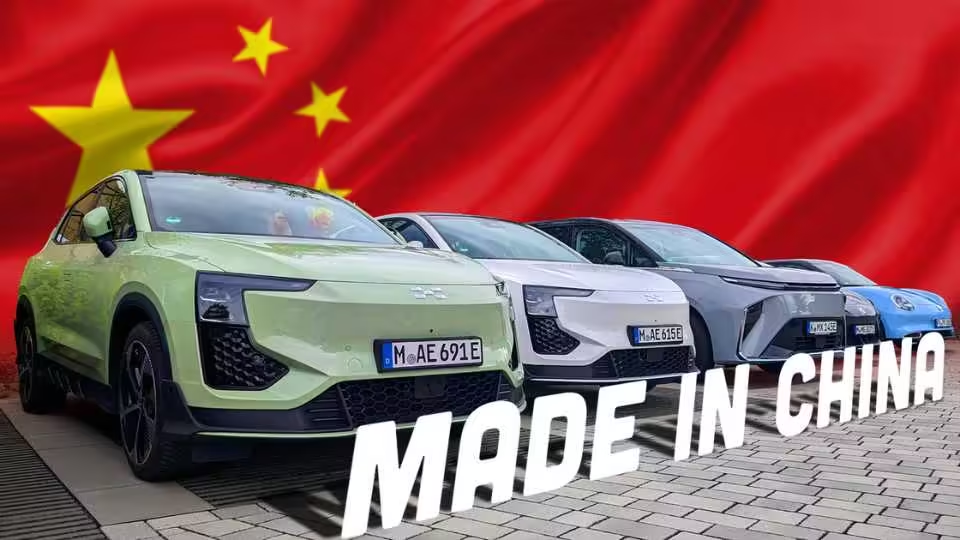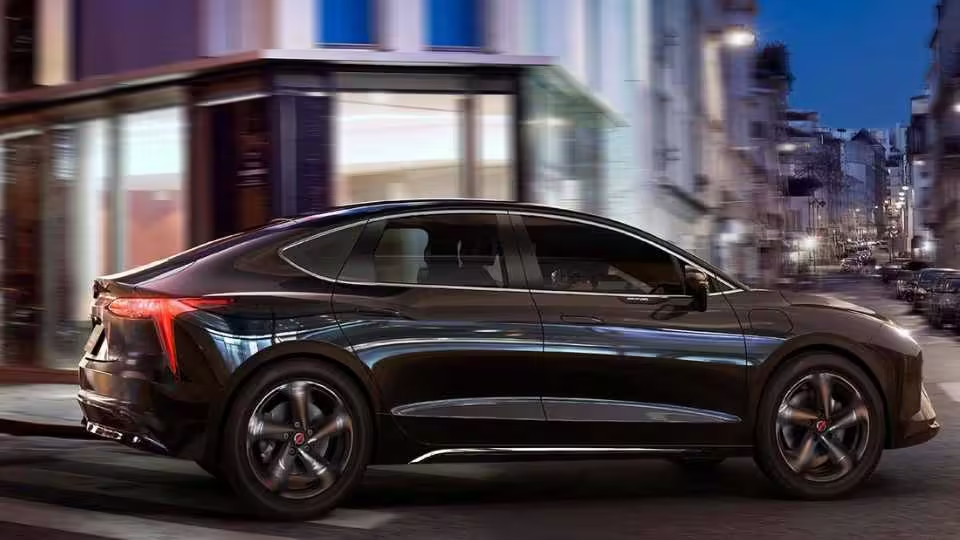European Union’s decision to impose tariffs on Chinese electric vehicles (EVs) stirred up global discussions. A German automotive expert called the decision “foolish,” suggesting it could have long-term effects on both the EU and global EV markets.

This tariff decision, aimed at protecting European automakers, may also raise prices and limit choices for European consumers.
Table of Contents
We explore the context behind this move, the reactions from the German auto industry, and insights from the German auto expert on why this decision may do more harm than good.
Background on EU’s Tariff Policy on Chinese EVs
The European Union introduced tariffs on Chinese electric vehicles to safeguard its domestic market. Officials argue that Chinese manufacturers receive subsidies, allowing them to sell EVs at lower prices.
This competitive edge, they claim, threatens Europe’s homegrown auto industry. The new tariffs aim to “level the playing field,” ensuring European carmakers can compete fairly.
China’s Growing Role in the Global EV Market
See more
In recent years, China has emerged as a major player in the EV market. With significant investments in technology and a strong manufacturing base, Chinese companies now dominate both domestic and global markets.
By offering EVs at competitive prices, they have rapidly gained market share worldwide, challenging Western carmakers.
The German Auto Industry’s Response

Germany, with its long-standing automotive legacy, is especially concerned about this move. Leading German brands like Volkswagen, BMW, and Mercedes-Benz rely heavily on global markets, including China.
The tariff decision has sparked worries that Europe could face retaliation from China, which might restrict market access for German vehicles.
Interview with the German Auto Expert
We interviewed Dr. Karl Schmidt, a seasoned expert with over 30 years in the automotive industry. Dr. Schmidt voiced his concerns about the EU’s tariff decision, calling it a “short-sighted approach.” According to him, the decision could have severe implications for both European automakers and consumers.
Key Points from Dr. Schmidt’s Interview
- Economic Downside: Dr. Schmidt explained that tariffs often increase prices for consumers, limiting affordable EV options in Europe.
- Impact on Competitiveness: He noted that tariffs would not make European cars better but would instead create an artificial advantage that may hurt innovation in the long run.
- Potential Retaliation: Dr. Schmidt warned of possible counter-tariffs from China, which could impact German exports.
- Environmental Goals: He expressed concern that limiting access to affordable EVs might slow down Europe’s green transition, especially as consumers look for low-cost alternatives to traditional gas-powered cars.
Expert’s Opinion on the Economic Impact
Dr. Schmidt argued that tariffs could have far-reaching consequences for the EU economy. Prices for EVs in Europe may rise, reducing the purchasing power of middle-income families who are looking to switch to electric vehicles.
If European consumers are forced to pay more, the shift to greener technology could slow down.
Implications for the German Automotive Sector
The German auto industry faces a unique challenge. On one hand, it must support local policies; on the other, it risks losing competitiveness in the global market.
Chinese carmakers have consistently improved their technology and designs, catching up to, and sometimes surpassing, European standards. Tariffs could create a barrier, but it may not be enough to maintain a lasting competitive edge.
European Consumer Perspective
For European consumers, the most significant concern is price. Chinese EVs are often more affordable, making them attractive for buyers. With the tariffs, European consumers may face limited options or higher costs, especially in the budget EV segment.
The tariffs could also mean fewer choices in design and features, reducing the appeal of the EV market in Europe.
Chinese Response to the EU Tariffs
In response to the EU’s move, Chinese officials voiced their disappointment, stating that the tariffs reflect “protectionist” policies.

Some in China’s government hinted at potential retaliatory measures, which could impact European car exports to China. Such moves would only deepen the trade rift, affecting more than just the auto industry.
EU’s Goals Behind the Tariffs
The EU sees the tariffs as a way to promote local EV manufacturing and to reduce dependence on Chinese technology.
By protecting its market, the EU hopes to encourage investments in homegrown innovations. However, critics argue that this approach may backfire, as it could stifle the competition that drives progress.
Alternative Solutions Proposed by the Expert
Dr. Schmidt suggests that instead of imposing tariffs, the EU should explore collaboration with China. Joint ventures or technology-sharing agreements could help Europe build a strong EV industry without the negative effects of tariffs. According to Dr. Schmidt, fostering competition would drive innovation and give European automakers a real competitive edge.
Economic Risks of Trade Tensions
Trade tensions, historically, have led to economic losses and disruptions. Dr. Schmidt referenced the trade war between the U.S. and China, where tariffs hurt both sides. Similar outcomes could occur here, with potential supply chain disruptions and increased production costs for EU companies.
Environmental Concerns and the EV Market
From an environmental standpoint, the expert highlighted that access to affordable EVs is essential for achieving carbon reduction goals. Tariffs may discourage EV adoption, as higher prices could push consumers back towards gas-powered vehicles, slowing down Europe’s progress towards its climate targets.
Global Reactions to the EU Tariffs
Countries like the U.S. and Japan have been watching the EU’s move with interest. Some analysts believe that these tariffs could set a precedent, encouraging other regions to adopt similar policies. This could lead to a fragmented EV market, slowing down global advancements in green technology.

Conclusion
The EU’s decision to impose tariffs on Chinese EVs has sparked mixed reactions across the automotive world. Dr. Schmidt’s insights suggest that the decision may hurt European consumers, increase prices, and create unnecessary trade tensions.
While the EU aims to protect its auto industry, the “foolish” nature of the decision, as Dr. Schmidt puts it, may overshadow its benefits. Finding common ground through cooperation, rather than conflict, may be a better path forward for the industry.
FAQs
Why did the EU impose tariffs on Chinese EVs?
The EU imposed tariffs to protect its local EV industry, believing Chinese EVs are subsidized and thus unfairly priced.
How might the tariffs impact European consumers?
Tariffs may increase EV prices in Europe, limiting affordable options for consumers.
What is China’s response to the EU tariffs?
China criticized the tariffs as “protectionist” and hinted at possible retaliatory measures.
How could these tariffs affect environmental goals?
Higher EV prices may slow down Europe’s transition to green energy, impacting climate goals.
What alternative solutions did the German expert suggest?
Dr. Schmidt suggested collaboration with China rather than tariffs, such as technology-sharing agreements to foster innovation.
Thank you 24